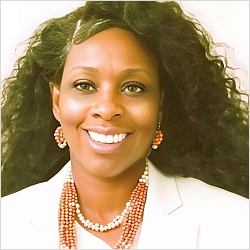My Approach to Helping
Lillian is not only a Licensed Clinical Social Worker (LCSW), but also a New York Chapter member of the National Association of Black Social Workers, Inc (NABSW). With over ten years of experience working in a variety of different mental health settings, including outpatient, inpatient and addiction. She utilizes a strength-based perspective offering a holistic approach that includes a traditional therapeutic process, anti-oppressive liberation, meditation mindfulness and self-care practices to promote healing and attainment of maximum potential. Lillian received her bachelor’s degree from Herbert Lehman College, City University of New York, in Social Work. She also earned a master’s degree from the Adelphi University School of Social Work. As an ally who stands in solidarity with refugees and immigrants of any status, Lillian incorporates cultural sensitivity into her work to accommodate different values and attitudes of various cultures and diverse populations.
Lillian empowers, motivates and encourages individuals, couples and families by providing strategies to assist them in working through life changes utilizing Structured Problem-Solving, Cognitive Behavioral and Trauma-focused therapy. Lillian also uses psychoanalytical and psychodynamic approaches, mindfulness and motivational interviewing techniques. Her therapeutic focus includes, but is not limited to, interpersonal difficulties, anxiety, depression, bereavement, cultural and diversity issues, anger management, domestic violence, sexual, and childhood trauma, life transitions, LGBTQ issues, and substance abuse. Lillian is a down-to-earth therapist who believes in providing a safe and supportive space where individuals can be authentic while overcoming their barriers. Further, Lillian believes that no one is exempt from needing assistance in remembering true greatness from within.
More Info About My Practice
Booking a session with Lillian is easy and convenient with TWO simple options: Send an email, or simply just call.
What I Love about Being a Psychotherapist
"What I love about my career? For me, it's about being able to be connect with humanity on a deeper level. I love standing in my life purpose. It is a privilege of immense quality and depth to share in others' emotions and thoughts. As a (Clinical Social Worker-Psychotherapist), I assist individuals in discovering their own strengths and abilities, thereby enabling them to regain their sense of self-worth. A decision such as this was not influenced by trends or financial schemes, but rather by a higher calling on one's life.
It was a Testament to my own resilience and growth that I can hold space for others and provide guidance. It is a reminder of the transformative power of healing and the power of the human spirit. I am honored, most grateful, and proud to be a part of this journey, and a mission that is much bigger than myself, and this is what I love about being a (Clinical Social Worker-Psychotherapist)."
-Otasowie Lillian Osaigbovo, LCSW
What I Say to People Concerned about the Therapy Process
First and foremost, understand your concerns, establish trust, explore your goals, and communicate your needs and wants regularly with your therapist. Have faith in your progress, even when faced with challenges, and be flexible.
Remember, therapy is a collaborative journey. Therapy is a form of support, and I am here to support you every step of the way. It's important to trust in the process and believe that change is possible. As a result, we will work together to resolve any concerns you may have and accomplish your goals.
-Otasowie Lillian Osaigbovo, LCSW
My View on the Nature of 'Disorders'
FOR ME, disorders are a complex interplay between chaos and order. Life is dynamic and ever-changing, and disorder often reflects that. Growth occurs in chaos. Understanding disorders is not about eliminating them entirely but rather navigating and harnessing their energies constructively. By embracing disorder's complexities, we can uncover deeper insights into the human condition. This approach allows for more clinical interventions and treatments to be made available. Rather than holding on for dear life to stigma, and assuming that disorders are defects, we can view them as integral parts of our human experience. One that is manageable and even appreciated in terms of its ability to contribute to resilience, growth, and creativity.
-Otasowie Lillian Osaigbovo, LCSW

